June 19, 2019 Emergency Medicine Conference Recap by Dr. Karima Sajadi
The Drexel EM Alumni Day
8:00 am "Interventional Pain Medicine and Emergency Medicine" by Dr. Russell Feit
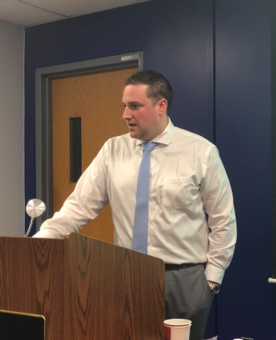
Being an attending is awesome:
- Autonomy
- Money
- Better schedule
- Freedom to do what you want
Be aware of lifestyle creep: paychecks are big, student loans may be big, recommend financing loans, buy used get disability insurance, save for retirement, refinance the loans
Practice patterns:
- Vary depending where you work
- Social admissions can be hard in some places
- HEART score > 6 is automatic admission to Cardiology service, etc.
Become efficient:
- Don’t stay late
- You time is valuable
- Scribing is great
- Know your mid-levels, who you can trust, and whom you cannot
- Say NO to ACLS/BLS
What does pain medicine entail?
- Meds management – a lot of opioids
- Interventional procedures under fluoroscopy and US
- 9-5 hours, no weekends, no holidays
- Pay is great
- Getting referrals from other specialists
Path to Board certification in Pain medicine:
- Must be board certified in EM
- Must complete ACGME-accredited pain fellowship
- Do not need to maintain EM boards once you are BC in your specialty
Conditions we treat:
Back and neck pain
CRPS
DM neuropathy
Has
Fibromyalgia
Joint pains
Cancer pain
Facet pain
Procedures:
Regional anesthesia
Opioids
Epidural catheters
Radiofrequency ablation
Vertebroplasty/kyphoplasty
Spinal cord stimulation
DRG (Dorsal Root Ganglion) stimulation
Percutaneous/endoscopic discectomy
Mild or minimally invasive lumbar decompression
Vertiflex – interspinous spacer
IT (intrathecal) pumps
And much more
If you have any questions, e-mail me at rcfeit8@gmail.com.
8:30 am "Reflections of a community attending" by Dr. Russell Goldstein
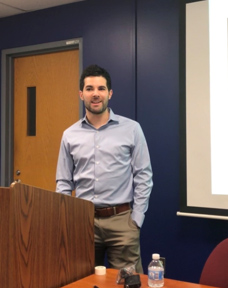
Working in affluent community in Arlington, VA
There is diversity – immigrants from all over the world, tourists and travellers
I also did some locum tenens
Academics vs community EM:
- Admissions have higher threshold: more access to care means more can be done as outpatient, limit on admissions that don’t get reimbursed. Use PCP/specialists a lot more, shared decision making. Alsways can go up the food chain if disagree.
- Admitted patients: sicker cohort, your diagnosis matters, everybody is watching you, floor-to-ICU transfers is a metric that is being tracked. It’s OK to be extra: ICU, CT, consult, sepsis protocol, airway, Abx.
- Refusal of care: evaluate capacity (right to refuse). Intoxicated/under arrest/psych hold does not mean loss of capacity. Forcible action on patients who have capacity = assault. Be safe, know the policies in ED and hospital, learn legal system in your state, document preferably in real time, phone people for guidance (risk management, department chair, etc)
- The metrics: LWBS, patient satisfaction, callbacks. In times of volume surge – quick visits and orders, call for help, RN in triage
- Patient satisfaction: acknowledge the wait and apologize, do at least 1 non-medical gesture (offer water, blanket, pillow, etc), overestimate the time for results
- Callbacks: annoying, not compensated for, but this is a follow up and a learning tool for you, gives peace of mind to you, is required in some practices, improves patient satisfaction, decreases medicolegal risk
- Patients per hour: frontload, 2 per hour is gold, 7-10 at a time is gold, tracking list
- APP supervision: varying experience in competency, can be challenging, keeping up to speed on FT presentations. Be approachable and nice. When in doubt, see the patient. Appreciate and delegate.
If you have any questions, e-mail me at Rgold114@gmail.com.
9:00 am "All about the Benjamins" by Dr. Justin Johnson
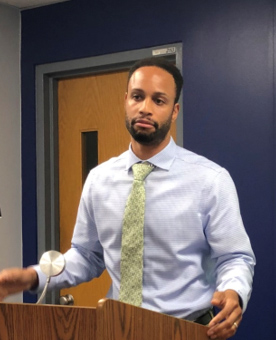
My dream job:
- Resident teaching/training
- Pediatric population
- Obstetrics coverage
- Great commute/biking
- Salary-based
My first day I learned we lost Peds and residents are going to another hospital. But I am resilient!
My Ob colleagues turned out to be not friendly. Still have 2 out 5!
Can’t bike due to poor bridge condition
RVU compensation model now!
Point: be flexible, be resilient
- Chart well: make sure your charts are not down-coded, get to level 5 if possible. MDM is the most important part for billing. Scoring MDM: meet 2 out of 3. HPI, SHFH, ROS, PE: make sure you include appropriately.
- Don’t forget critical care billing! Know what is included in critical care billing
Point: chart well, it will affect your bottom line
If you have any questions, e-mail me at shownuf@gmail.com.
9:30 am "Financial Success Coming out of Residency" by Dr. Ben Liss
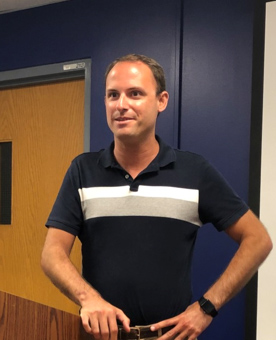
Read the books: "The White Coat Investor" by James Dahle, "The bogleheads" by John Bogle, "If you can" by William Bernstein
- Live like a resident in the first few years as an attending. Make a lot of money, don’t spend it. Convert your high income into high net worth. Pay off your loans, save for down payment, max out for retirement account.
- Written plan – grow slowly into attending income.
- Student loan management – revised pay as you earn, higher payments after residency. Student loan refinancing: keep refinancing down to pay off more.
- Disability/Life insurance – very important, cheaper to get when you are still a resident. Protect your greatest asset – your job. MDs do become disabled: docs have higher rates of MSK and mental disabilities. Long-term disability is tax-free, insure 60-70% of income, need individual policy, not group. Needs to be portable.
- Life Insurance – important to get it if you have a family. Don’t get whole life, bit get term life insurance. It’s cheaper for women.
- Investing – 401K match is free money, tax-deferred is upfront tax break, tax-free (Roth) is tax-free at withdrawal (get Roth while you are a resident). HAS if you have a high-deductable health insurance. Find out what’s best in your individual situation.
Index funds: diversify broadly.
10:30 am "Longevity" by Dr. Loice Swisher
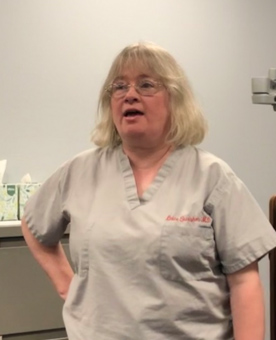
The specialty is ever changing, you will not practice the same way you do now in 5-10 years
Change is hard
Thinking of yourself as a butterfly while in actuality you are at the caterpillar stage is a mistake
Being a physician changes the way your see life differently
You will encounter a lot of road blocks: sickness, deaths, marriages, law suits, etc.
You cannot stop them from happening, but you can learn to be resilient and prepared to handle them.
Important things are:
- Connections – family, friends, colleagues, etc
- Calling – your passions, hobbies, keep your motivations up
- Compassion to yourself – self-kindness vs self-judgement, common humanity vs isolation, mindfulness vs over-identification
11:00 am "Things we can learn from my heartbreak" by Dr. Alin Gragossian
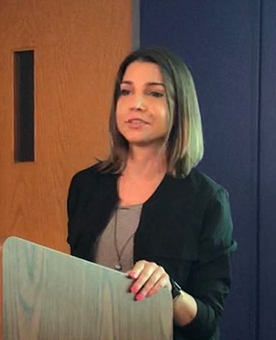
I got a heart transplant while in residency because of dilated cardiomyopathy!
You can learn from everything in your life.I cannot change my past, but I can learn from what happened and move on with my life.
Teaching points:
- Communication – make sure you communicate with your patients in a language that is palatable to them
- What you write in your chart can be read by your patients – they will likely request medical records
- Lidocaine works like magic, but it wears off – be mindful of that and ensure adequate anesthesia
- Treat pain, but be careful of Toradol – it does ruin your kidneys. You don’t have to give large doses of opioids.
- Lasix makes you pee everywhere if you don’t have a Foley in place (or urinal in your hand). There are non-invasive Foleys out there…
- Young people look good until they don’t – they crash minutes after they looked stable and well
- Patients can hear what you are saying right outside of the door, and some of them understand what you are talking about
- For heart transplant recipients:
Adenosine – start at 1 mg, max 3 mg
No amount of Atropine will work for bradycardia (try pacing instead)
No CP/palpitations – be very wary of potential STEMI after 5 years
Our ECGs are very different
- Don’t try to be bad ass with heart transplant patients – just call HTT immediately. Seriously!
- Technically we are all supposed to have medical ID bracelets. Check for those.
- Become organ donor today! Please!!!
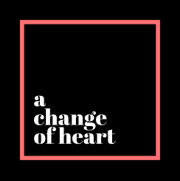
How did I get through it?
- Positive attitude
- Mindset matters
- Just take it and run with it
- Make the best out of it
Check out Alin’s blog: https://www.achangeofhe.art/blog
The information on these pages is provided for general information only and should not be used for diagnosis or treatment, or as a substitute for consultation with a physician or health care professional. If you have specific questions or concerns about your health, you should consult your health care professional.
The images being used are for illustrative purposes only; any person depicted is a model.
Back to Top